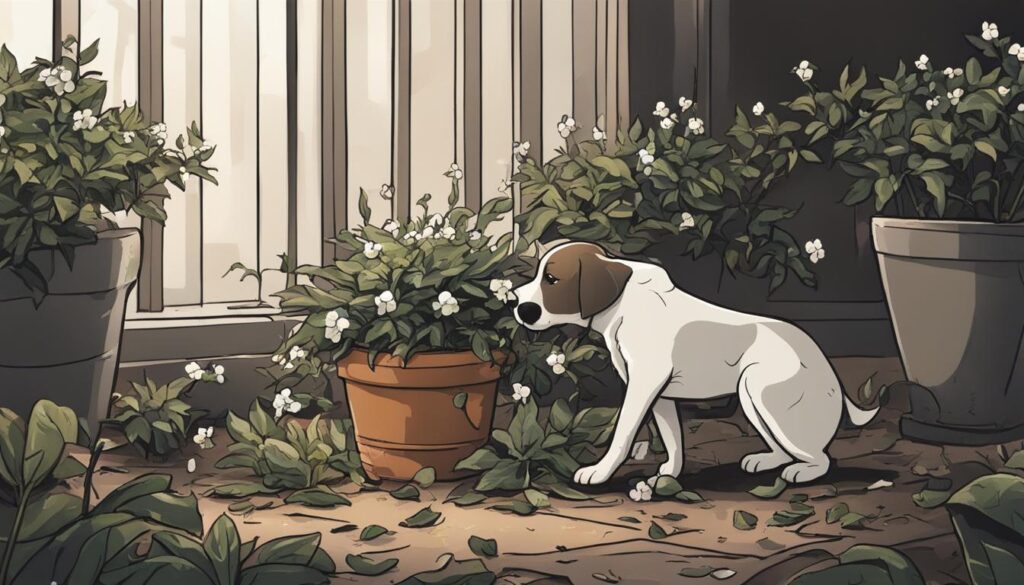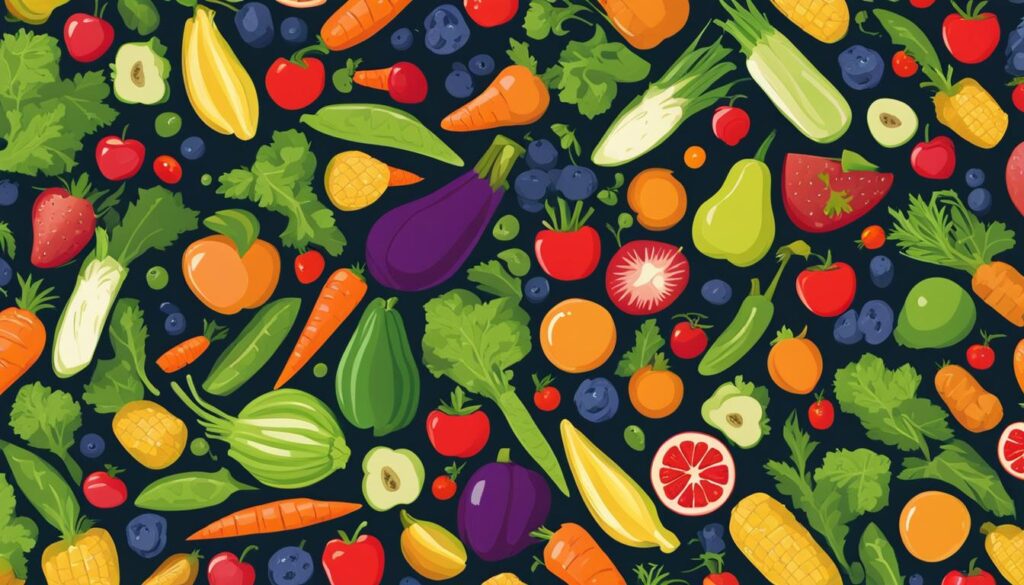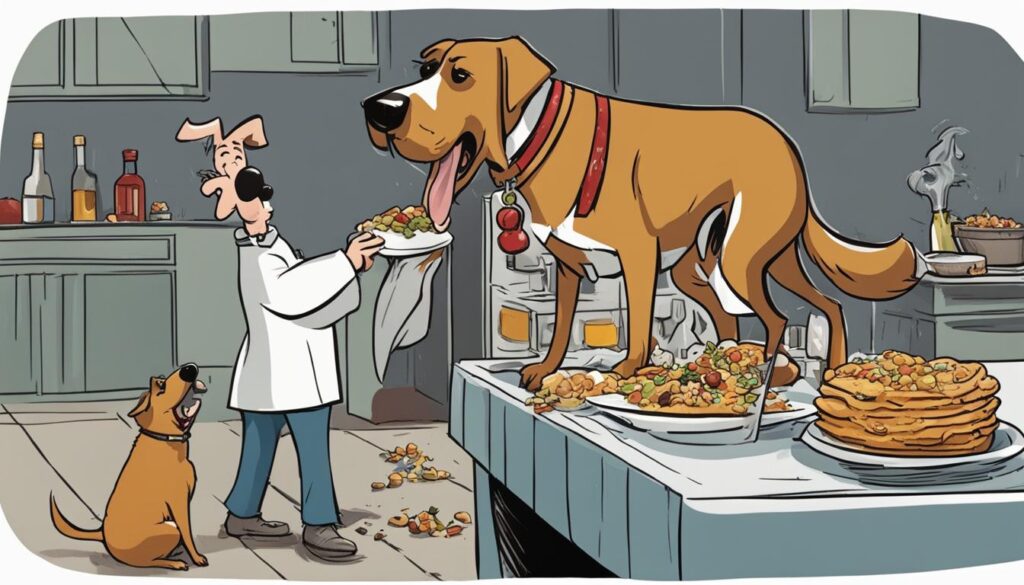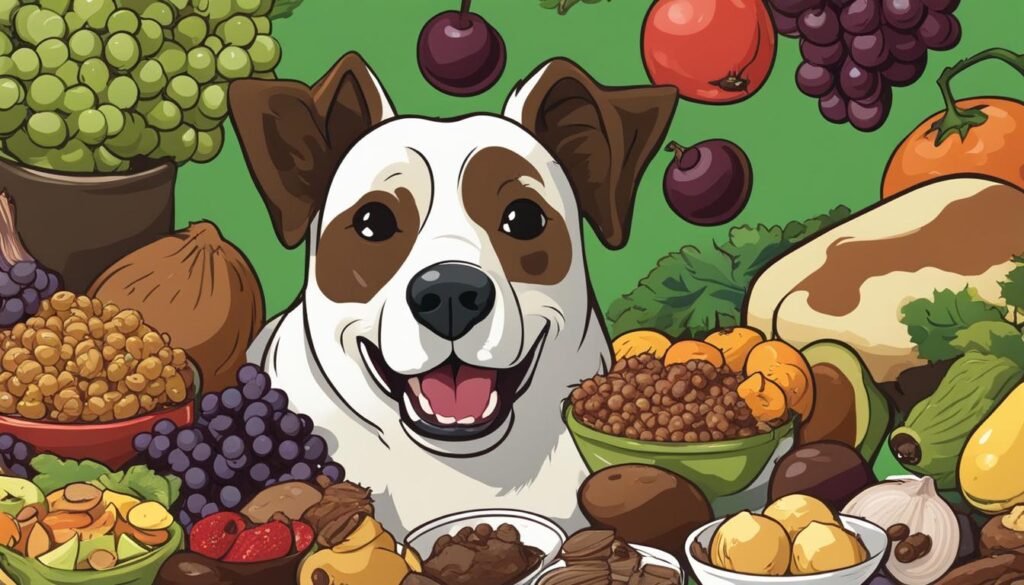Are you aware of the foods that can be toxic to your furry friend? As a responsible dog owner, it’s crucial to know what foods are dangerous for dogs and take necessary precautions to keep them safe. In this article, we will discuss the harmful ingredients that you should avoid feeding your dog, such as toxic foods, including toxic dog treats. By understanding these dangers, you can ensure your dog’s well-being and prevent any unnecessary health risks.
Curious to learn more about what foods are toxic to dogs and can be deadly for them? Stay tuned as we delve into the details and provide valuable insights on this topic. Remember, your beloved pooch relies on you to make informed choices regarding their diet, so let’s explore together and keep them safe!
Common Toxic Plants for Dogs: Watch Out for These in Your Home and Yard
When it comes to keeping your furry friend safe, it’s essential to be aware of potential dangers lurking in your home and yard. While plants may add beauty to your surroundings, some can be toxic to dogs if ingested. To ensure your canine companion stays healthy and happy, it’s important to watch out for these common toxic plants.


Toxic plants for dogs can include avocado, apple seeds, apricot pits, cherry pits, moldy foods, mushroom plants, onion, potato leaves, rhubarb leaves, and tomato leaves. These plants contain substances that can be harmful to dogs if consumed. While some may only cause mild irritation, others can lead to more severe symptoms or even be fatal.
To help you identify and avoid these dangerous plants, here’s a comprehensive table highlighting some of the most common toxic plants for dogs:
| Plant | Potential Health Risks |
|---|---|
| Avocado | Cardiovascular damage, vomiting, diarrhea |
| Apple Seeds | Cyanide poisoning |
| Apricot Pits | Cyanide poisoning |
| Cherry Pits | Cyanide poisoning |
| Moldy Foods | Neurological symptoms, liver damage |
| Mushroom Plants | Organ failure, seizures, gastrointestinal upset |
| Onion | Hemolytic anemia, gastrointestinal upset |
| Potato Leaves | Neurological symptoms, gastrointestinal upset |
| Rhubarb Leaves | Gastrointestinal upset, calcium oxalate crystals |
| Tomato Leaves | Gastrointestinal upset, weakness, tremors |
Remember, prevention is key when it comes to keeping your dog safe from toxic plants. Be sure to remove any potentially harmful plants from your home and yard, and consider using pet-friendly alternatives to add greenery to your surroundings. If you suspect that your dog has ingested a toxic plant, contact your veterinarian immediately for guidance and assistance.
Foods That Can Cause Serious Problems for Dogs: Surprising Dangers to Avoid
When it comes to feeding your furry friend, it’s important to be aware of the foods that can be harmful and even deadly to dogs. While some may seem surprising, it’s crucial to know the risks in order to protect your four-legged companion. Here are some dangerous human foods to avoid giving to your dog:
“Xylitol”
Found in candy, gum, toothpaste, and baked goods, xylitol is toxic to dogs. It can cause a sudden drop in blood sugar levels and even liver failure. Keep all xylitol-containing products out of your dog’s reach to prevent any accidental ingestion.
“Avocado”
While avocados may be a healthy choice for humans, they can be problematic for dogs. The persin found in avocados can cause vomiting or diarrhea in dogs. Additionally, if your dog swallows the avocado seed, it can potentially cause obstructions in their digestive system.
“Alcohol”
Even a small amount of alcohol can have serious consequences for dogs. It can lead to vomiting, diarrhea, breathing problems, and in severe cases, it can even be fatal. Ensure that all alcoholic beverages and food products containing alcohol are kept out of your dog’s reach.
Other foods that can be harmful to dogs include onions and garlic (which can cause anemia by damaging their red blood cells), grapes and raisins (which can lead to kidney failure), chocolate (which contains theobromine that can cause various health issues), raw meat and bones (which can harbor harmful bacteria or cause choking hazards), salt (which can lead to tremors, seizures, and even death), and excessive sugar (which can contribute to weight gain, dental problems, and diabetes in dogs).
| Foods to Avoid | Potential Risks |
|---|---|
| Xylitol | Drops in blood sugar, liver failure |
| Avocado | Vomiting, diarrhea; seed can cause obstructions |
| Alcohol | Vomiting, diarrhea, breathing difficulties, potential death |
| Onions and Garlic | Anemia, damage to red blood cells |
| Grapes and Raisins | Kidney failure, vomiting, lethargy |
| Chocolate | Vomiting, diarrhea, heart problems, tremors, seizures |
| Raw Meat and Bones | Bacterial contamination, choking hazards |
| Salt | Thirst, vomiting, diarrhea, tremors, seizures, potential death |
| Sugar | Weight gain, dental problems, diabetes |
Keep in mind that this is not an exhaustive list, and there may be other foods that can be harmful to dogs. If you’re unsure about the safety of a particular food, it’s always best to consult with your veterinarian before introducing it to your furry friend’s diet.
Safe and Healthy Human Foods for Dogs: Treats You Can Share
While it’s important to be aware of the foods that can be toxic to dogs, there are many safe and healthy human foods that you can share with your furry friend. These treats not only provide a delicious alternative to traditional dog treats but also offer nutritional benefits. Here are some dog-friendly human foods that you can incorporate into your dog’s diet:
| Food | Benefits |
|---|---|
| Lean cuts of well-cooked meat (chicken or turkey) | High in protein and can be given after removing visible fat |
| Fruits like apples, oranges, bananas, and watermelon (without seeds) | Provide vitamins, minerals, and fiber |
| Veggies like carrot sticks, green beans, cucumber slices, and zucchini slices | Low in calories and a great source of vitamins and fiber |
| Cooked white rice or pasta | Useful for dogs with stomach problems or as a bland option |
These safe and healthy human foods can make excellent treats or additions to your dog’s regular meals. However, it’s essential to remember that moderation is key. Too much of any food, even if it’s considered safe, can upset your dog’s stomach. Always introduce new foods slowly and monitor your dog for any adverse reactions.
As always, if you have any concerns or questions about your dog’s diet, it’s best to consult with your veterinarian. They can provide personalized recommendations based on your dog’s specific needs and health conditions.


Remember These Tips for Healthy Snacking:
- Choose fresh, whole foods whenever possible.
- Avoid seasonings, spices, and sauces that may be harmful to dogs.
- Remove any seeds, pits, or cores before offering fruits to your dog.
- Avoid foods that are high in fat, salt, or sugar.
- Introduce new foods gradually to prevent digestive upset.
- Monitor your dog for any signs of allergies or intolerances.
By incorporating these safe and healthy human foods into your dog’s diet, you can provide them with a variety of tasty treats while ensuring their overall well-being.
What to Do If Your Dog Ingests Something Toxic: Actions to Take
If you suspect that your dog has ingested something toxic, it’s important to act quickly to ensure their safety. Here are some steps you should take:
- Assess the situation: If you see your dog consuming something that could be toxic, try to determine what it was and how much they ingested. This information will be helpful when contacting a veterinarian or poison control center.
- Call for help: Immediately contact the ASPCA Animal Poison Control Center at (888) 426-4435. They have experts available 24/7 who can provide guidance and instructions based on the specific substance ingested by your dog.
- Observe your dog: While waiting for professional advice, monitor your dog closely for any signs of distress or symptoms. These may include vomiting, diarrhea, coordination problems, lethargy, seizures, or difficulty breathing.
- Keep emergency contacts accessible: Make sure you have the contact information for your local veterinarian and the nearest emergency clinic readily available. This will save time in case immediate medical attention is required.
Remember, time is of the essence when dealing with a possible toxic ingestion, so don’t hesitate to seek professional help. The sooner you act, the better the chances of a positive outcome for your furry friend.


Disclaimer: The information provided here is for informational purposes only and should not replace professional veterinary advice. Always consult with a veterinarian if you have concerns about your dog’s health or well-being.
Conclusion
Now that you are aware of the foods that can be toxic to dogs, it’s crucial to protect your furry friend by avoiding these dangerous foods. Always consult with your veterinarian if you have any concerns or questions about your dog’s diet. They can provide expert guidance tailored to your dog’s specific needs.
Remember to keep potentially harmful foods out of your dog’s reach. Store them securely and make sure your dog cannot access them. Additionally, providing safe and healthy treats, such as lean cuts of well-cooked meat, fruits like apples and bananas, and vegetables like carrot sticks and green beans, can help satisfy your dog’s cravings without posing any harm.
By being informed and cautious, you can ensure the well-being of your beloved pooch. Protecting your dog from toxic foods is an essential part of being a responsible and loving pet owner. So, prioritize their health and happiness by providing them with a safe and nutritious diet.
FAQ
What are some common foods that are toxic to dogs?
Some common foods that are toxic to dogs include alcohol, avocado, chocolate, coffee, caffeine, citrus, coconut and coconut oil, grapes, raisins, macadamia nuts, milk and dairy products, nuts, onions, garlic, chives, raw/undercooked meat, eggs, and bones, salt, xylitol, and yeast dough.
What are some common plants that are toxic to dogs?
Some common plants that are toxic to dogs include avocado, apple seeds, apricot pits, cherry pits, moldy foods, mushroom plants, onion, potato leaves, rhubarb leaves, and tomato leaves.
What are the symptoms of toxicity in dogs?
Symptoms of toxicity in dogs may include vomiting, diarrhea, coordination problems, lethargy, seizures, and difficulty breathing.
Can dogs eat any human foods?
Yes, there are some safe and healthy human foods that dogs can eat, such as lean cuts of well-cooked meat, fruits like apples and bananas, vegetables like carrots and green beans, and cooked white rice or pasta.
What should I do if my dog ingests something toxic?
If your dog ingests something toxic, it is important to call the ASPCA Animal Poison Control Center at (888) 426-4435 and seek immediate veterinary attention. Symptoms may vary depending on the toxic substance ingested.
How can I protect my dog from toxic foods?
To protect your dog from toxic foods, it is important to be aware of the foods that can be harmful and avoid feeding them to your dog. Always consult with your veterinarian if you have any questions or concerns about your dog’s diet, and keep potentially harmful foods out of your dog’s reach.

